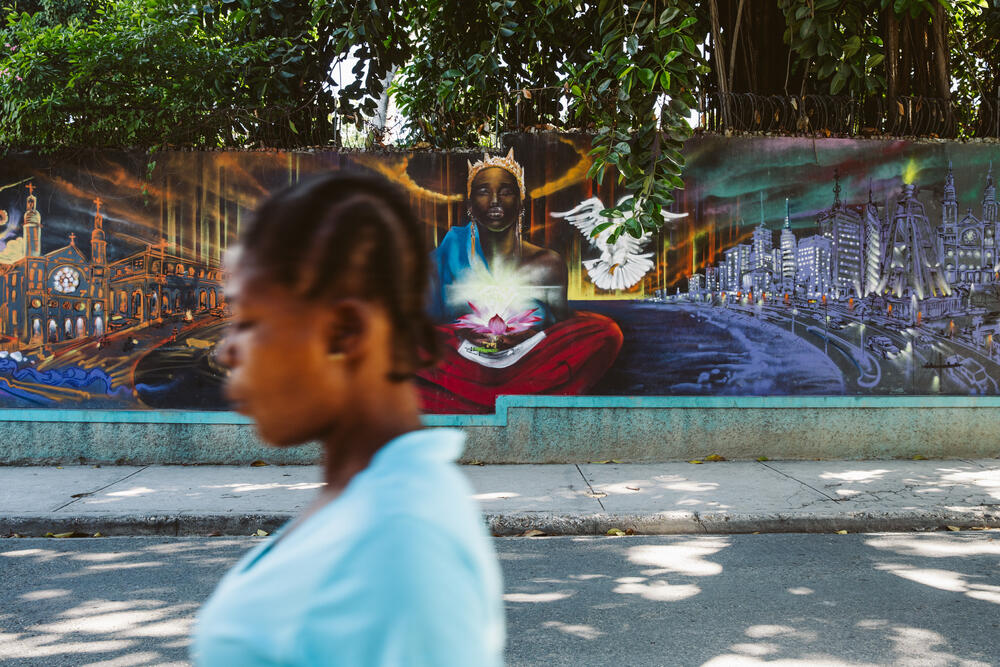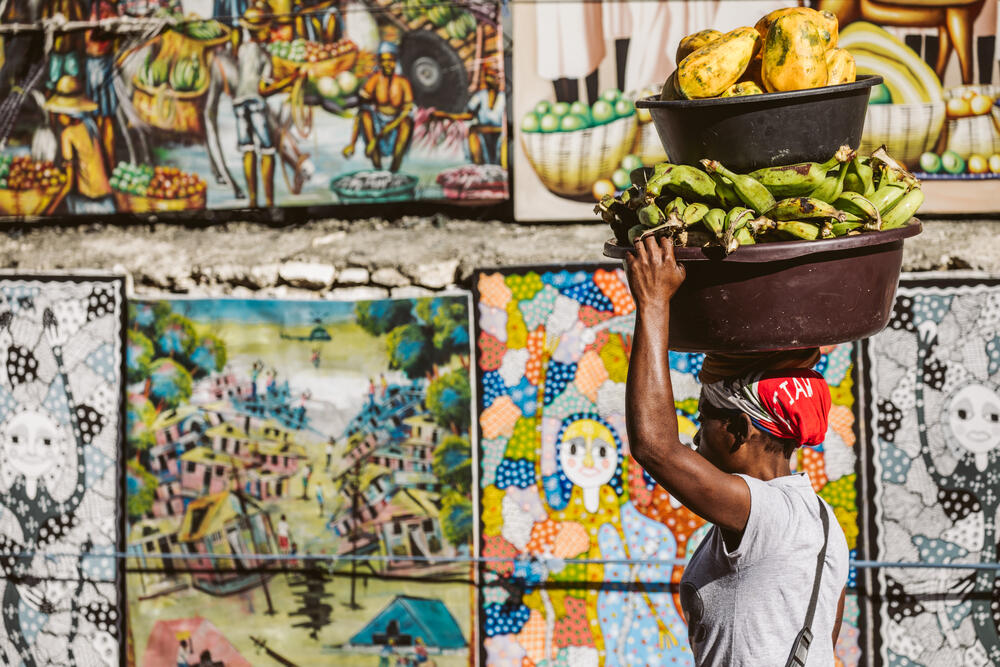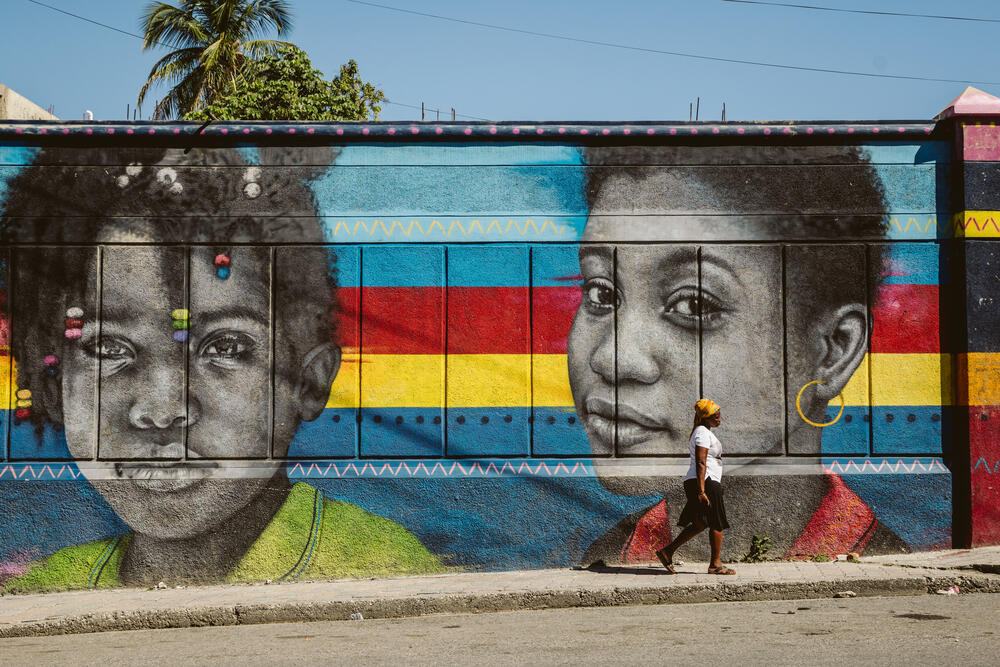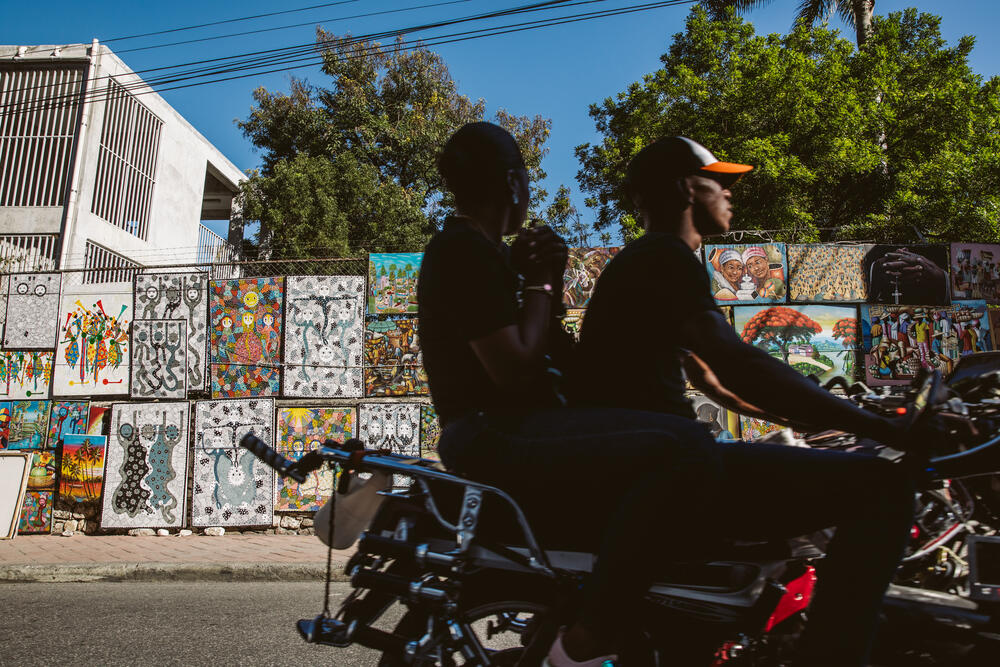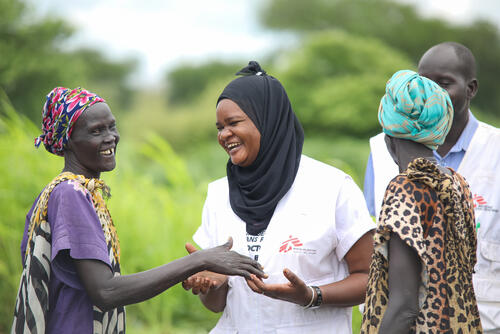Haiti: A call to support survivors of sexual violence
13 January 2025
Survivors of sexual and gender-based violence in Haiti's capital urgently need vital services such as safe shelters, mental health support and medical care, as rapes and other assaults have become widespread during violence and insecurity in the city in recent years.
Médecins Sans Frontières (MSF) has provided comprehensive medical and psychological care to sexual and gender-based violence survivors through its Pran Men'm clinic in Port-au-Prince since 2015. After a citywide suspension of MSF's medical activities due to threats against staff and patients in November, the clinic reopened in December and is continuing to receive patients 24/7, free-of charge.
To highlight the crisis of sexual violence in Haiti's capital, MSF partnered with an award-winning Haitian visual artist in the U.S., Lyne Lucien, to animate one survivor's difficult journey toward recovery.
"We hope that by telling survivors' stories, sensitively and anonymously, we can draw much-needed attention to the challenges that survivors face in Haiti and beyond, as well as the concrete ways that people and organizations can offer support," said Diana Manilla Arroyo, MSF head of mission in Haiti. "One of the problems we see again and again is that while we can offer comprehensive health care, survivors cannot safely return to their regular lives and have no safe place to go."
An increase in sexual violence
Violence has become widespread in the Port-au-Prince metropolitan area in recent years, as seen in frequent clashes between armed groups and the police and the closure of major institutions such as public hospitals due to insecurity. MSF worked to increase access to care for survivors of sexual and gender-based violence in Port-au-Prince and saw more patients than ever before.
In 2024, MSF provided care to 4,463 survivors of sexual and gender-based violence at Pran Men'm clinic and Carrefour Maternity Hospital, and through a new program at its hospital in Cité Soleil. In 2023, MSF provided care to 3,207 survivors at Pran Men'm clinic and Carrefour Maternity Hospital, which was a sharp increase from 1,775 in 2022.MSF also provided care to survivors through mobile clinics in multiple areas of Port-au-Prince
While MSF continues to receive many survivors of violence by intimate partners, since mid-2022, more patients say that their assailant was previously unknown to them, and many incidents have involved armed groups, often with more than one assailant. Among the survivors are children and people who have been displaced from their homes.
A typical method used by these groups is intimidation with weapons, as recounted by the survivor whose story is featured in the animation: “I was at my father’s house when we heard someone knocking. A voice from outside said that he would shoot if we did not open the door. When we opened, we saw three armed men, hooded, who threatened to kill us if I did not agree to sleep with them. And then, the three of them raped me that day.”
Following these incidents, individuals often face a journey of internal displacement, carrying both physical and psychological scars from their experiences, as recounted by this patient: “After the incident, we had to flee the area and stay in another part of the city. I felt dead inside because the memories of the attack tormented me and made me cry non-stop.”
The current turmoil in Haiti has made it difficult for survivors to seek justice through the legal system or obtain protection from the authorities.
Many survivors stay in Port-au-Prince’s gathering sites for internally displaced people, where they face additional risks. Others have no choice but to sleep on the streets or return to areas where the sexual aggression occurred.
Only a few emergency shelters exist for sexual and gender-based violence survivors in Port-au-Prince, and they have very limited capacity. Survivors may be limited to staying for only a few days, or excluded because they have children or because they have certain medical conditions. Survivors may also need economic or legal assistance, but these services are also far too limited.
Medical and psychological support is also essential to support healing and recovery. One patient shared her experience on how MSF services helped her deal with the aftermath of the abuse:
“I found a psychologist who spoke with me and lifted my spirits. She explained that the doctors would do everything possible to help me."
Medical and psychological services should be available at every stage of a survivor's recovery — and timely medical attention is crucial for providing the most comprehensive care possible, including immediate post-exposure HIV prophylaxis and contraception.
While MSF has increased its response, more services are urgently needed within the communities most affected by sexual and gender-based violence.
"Everyone who has been a victim of sexual violence deserves to make informed choices about their health and their future," Manilla Arroyo said. "Relevant information and services must be more widely available, such as medical and psychological care, socioeconomic support, shelter and protection, so that survivors can decide what will best ensure their dignity, health and bodily autonomy."
